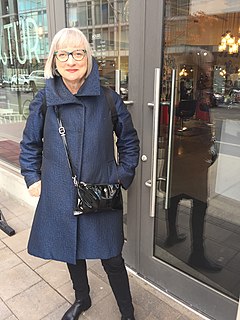A Quote by Howard Nemerov
Both poet and painter want to reach the silence behind the language, the silence within the language. Both painter and poet want their work to shine not only in daylight but (by whatever illusionist magic) from within.
Related Quotes
For language to have meaning, there must be intervals of silence somewhere, to divide word from word and utterance from utterance. He who retires into silence does not necessarily hate language. Perhaps it is love and respect for language which imposes silence upon him. For the mercy of God is not heard in words unless it is heard, both before and after the words are spoken, in silence.
There is this tendency to think that if you could only find the magic way, then you could become a poet. "Tell me how to become a poet. Tell me what to do." . . . What makes you a poet is a gift for language, an ability to see into the heart of things, and an ability to deal with important unconscious material. When all these things come together, you're a poet. But there isn't one little gimmick that makes you a poet. There isn't any formula for it.
The tension to mother the "right" way can leave a peculiar silence within mother daughter relationships--the silence of a mother'sown truth and experience. Within this silence, a daughter's authentic voice can also fall silent. This is the silence of perfection. This silence of perfection prevents mothers from listening and learning from their daughters.
Harriet Levin [is] a shining poet in her generation.... The dynamics of her language and her vigorous voice distinguish all her poems. Levin's fearless willingness to tackle any subject combines with her subtle intelligence to produce a rare reading experience, the moving, psychologically sophisticated and intriguing work of a poet with both guts and craft
In your language you have a form of poetry called the sonnet…There are fourteen lines, I believe, all in iambic pentameter. That’s a very strict rhythm or meter…And each line has to end with a rigid pattern. And if the poet does not do it exactly this way, it is not a sonnet…But within this strict form the poet has complete freedom to say whatever he wants…You’re given the form, but you have to write the sonnet yourself. What you say is completely up to you.






































